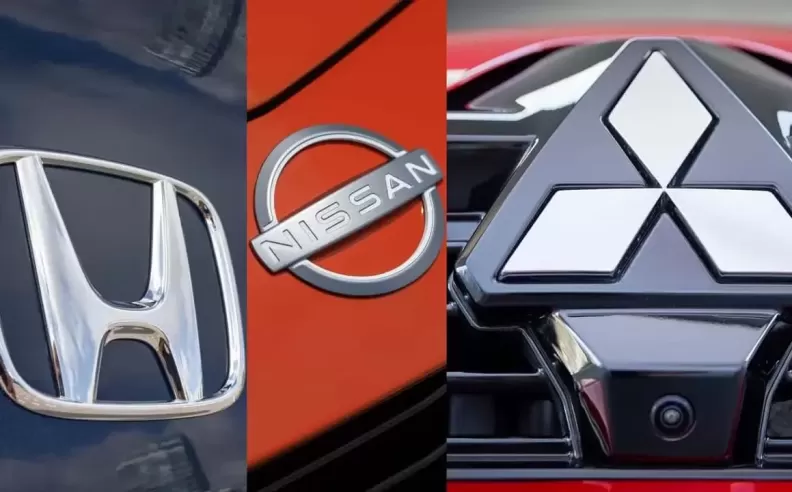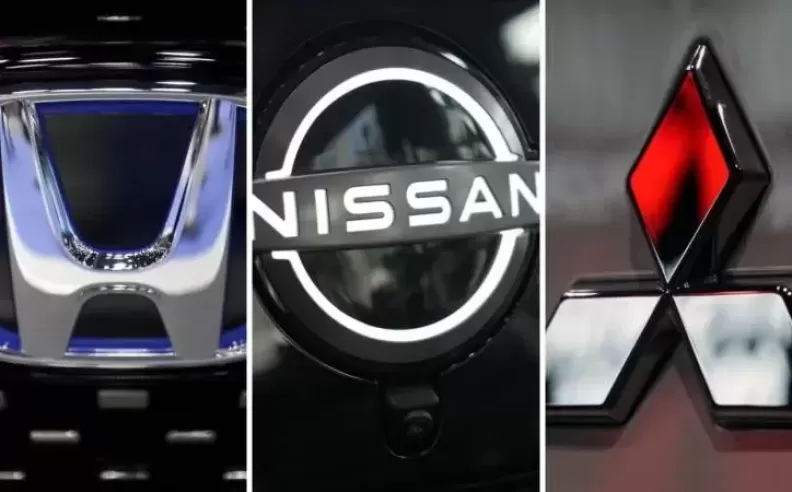
The automotive industry is witnessing a significant shift as major players adapt to the growing demand for electric vehicles (EVs) and advanced software solutions. In a recent development, Honda, Nissan, and Mitsubishi have joined forces to accelerate their efforts in these areas. The collaboration, initially announced as a rumor, has now been confirmed with a memorandum of understanding (MoU) signed by the three Japanese automakers. This partnership aims to focus on developing electric vehicles, software-defined vehicles (SDVs), and related technologies.

The primary goal of this alliance is to pool resources and expertise to advance the development of EVs and SDVs. The collaboration will concentrate on several key areas:
Electric Vehicles and Software-Defined Vehicles: The partnership aims to accelerate the development of software-defined vehicles, which rely heavily on software for various functions such as autonomous driving, connectivity, and artificial intelligence. By sharing technology and resources, Honda, Nissan, and Mitsubishi plan to improve the capabilities of their EVs and SDVs, making them more competitive in the global market.
Joint Development of New Batteries and Electrically Driven Axles: The trio will work together on creating new battery technologies and electrically driven axles. This includes sharing motors and inverters to enhance the efficiency and performance of their electric vehicles. The collaboration aims to achieve economies of scale, reduce costs, and expedite the development process.
Mutual Vehicle Complementation: An interesting aspect of the partnership is the agreement between Nissan and Honda to share models and complete each other's lineups. This will include both combustion cars and EVs, providing a broader range of options for consumers. While Mitsubishi's role in this strategy is still being defined, the inclusion of Mitsubishi in the alliance could further expand the variety of vehicles offered under this collaboration.
The partnership comes at a critical time as the global automotive landscape is undergoing rapid changes. Chinese automakers, in particular, have been making significant strides in the EV market, offering cheaper and more diverse options. By joining forces, Honda, Nissan, and Mitsubishi aim to strengthen their position and remain competitive in an increasingly crowded market. The collaboration also helps mitigate the high costs and lengthy timelines associated with developing EVs and SDVs independently.
While the partnership promises to bring about significant advancements, it does not appear to include the development of niche or sports cars, at least for now. Unlike the successful collaboration between Toyota and Subaru on the GR86/BRZ sports cars, this alliance seems focused on mainstream vehicles, particularly crossovers and SUVs. This approach is likely driven by the higher profitability and broader market appeal of these vehicle segments.
This alliance is not the only significant collaboration among Japanese automakers this year. Earlier, Toyota, Mazda, and Subaru announced a joint commitment to prolonging the life of internal combustion engines (ICEs) through hybridization and carbon-neutral fuels. While these partnerships may seem different in focus, they both highlight the industry's adaptive strategies to balance the transition to new technologies with the continuation of existing ones.
The partnership between Honda, Nissan, and Mitsubishi marks a notable development in the automotive industry, particularly in the fields of EVs and software innovation. As the trio works together to overcome the challenges posed by the rapidly evolving market, consumers can expect to see more advanced and diverse offerings in the coming years. While the immediate focus may not include sports cars, the collaboration sets the stage for exciting developments in mainstream vehicle categories, ultimately benefiting a broad range of consumers.

Wael is an automotive content writer specializes in creating written content for Motor 283. Producing a wide range of content, including blog posts, articles, product descriptions, reviews, and technical guides related to cars, trucks, motorcycles, and other vehicles, with an unprecedented passion for cars, and motorcycles.
